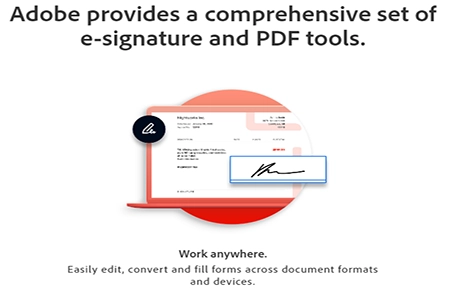Embarking on a journey through the evolution of English Turkish translation unveils a fascinating story of technological and methodological advancements. From the humble beginnings of the early 90s to the cutting-edge tools of today, this field has witnessed tremendous growth and transformation. Join this English Turkish translator as we explore the milestones and personal experiences that have shaped the world of English and Turkish translation over the decades.
The Early Days of English Turkish Translation: A Personal Journey
Reflecting on the journey of English Turkish translation over the past decades reveals a remarkable transformation. This transformation spans both technology and methodology. My initial exposure to this evolving landscape began in a unique way: surprisingly, not as an English Turkish translator. I started as an errand boy in a translation agency in Istanbul. This was in the early 90s, just before I attended university. It was a time of great learning and observation for me.
Back then, the tools and processes used in translation were vastly different from what they are today. Translators relied on what now seems like primitive technology. They used DOS-based word processors. These processors were installed on PCs with 286 motherboards (imagine a hard disk that has only 512 Mb space). Compared to modern computers, these PCs were enormous. So much so that special compartments had to be built under the desks. These compartments were specifically designed to accommodate the large size of the computers. It was a different era in the world of translation.
Transitioning Tools in English Turkish Translation
I vividly remember the translators discussing the significant changes in their work over time. They often reflected on how much easier translation had become. This was especially true when compared to just five years prior. Back then, they worked with mechanical typewriters. These typewriters were in their Karakoy office, before the advent of the bulky PCs. The transition to computers was a major step forward.
The Dawn of the Digital Age in English Turkish Translation
Computers were a relatively new phenomenon at the time. Even banks had only recently started incorporating them into their daily operations. When you went to the bank, the teller would press a key on the keyboard, and then watch as the corresponding letter appeared on the screen. This simple act was a cause for celebration. The teller would then turn to a colleague, who was watching in awe, and they would high-five each other, exclaiming, “Yay! It worked”. OK, I made this up. This never happened to me. But I’m sure in that period of time, this has happened to someone. The general public was that computer illiterate.
Electronic dictionaries, now a staple in the English Turkish translator’s toolkit, were not available then. Instead, the office functioned in a more traditional manner. It housed 6-10 translators on-site at any given time. Additionally, there were freelancers who contributed remotely from their homes.
Dictionaries: The Unchanging Pillars in English Turkish Translation
A significant feature of the office was a room dedicated entirely to dictionaries. This room was a library of sorts, a testament to the translation era of the time. It housed an extensive collection of dictionaries. These included English Turkish, Turkish English, German, Spanish, Japanese, and more. They covered a wide range of fields such as medical, legal, and civil engineering. The translators would select the relevant dictionaries based on their current subject matter. Often, this meant carrying 4-5 heavy books to their desks for reference. This practice highlights the physicality and extensive research involved in translation during that era.
The Freelance Era: Evolving Resources in English Turkish Translation
A decade later, my journey in the world of translation took a new turn as I began working as a freelance English Turkish translator. During this period, the landscape of translation tools was still evolving. Paper dictionaries continued to be the primary resource, especially for specialty terms. They were the go-to for any complex or industry-specific language.
If there’s a common misconception about professional English Turkish translators, it’s that we don’t use dictionaries. This couldn’t be further from the truth. We do, in fact, use dictionaries extensively. They are an indispensable part of our toolkit. I mean, sure, we have a word or two in our heads for almost every English word. But that’s just the tip of the iceberg.
The reality is that we often need to consult dictionaries. This is crucial to find the very best word to use in each context. It’s not just about translating words; it’s about conveying meanings, emotions, and nuances. The right choice of word can make all the difference. Hence, dictionaries remain a fundamental resource, even for seasoned translators. They help us refine and perfect our translations, ensuring accuracy and appropriateness in every context.
Enter the Crucial Tools for an English Turkish Translator
Alongside these traditional tools, we had a basic digital aid. It was a dictionary application named MoonStar. This application was particularly useful for quickly looking up common words. It saved us a considerable amount of time on simpler translations. However, for more specialised terms, we still relied heavily on physical dictionaries. These traditional tools had a certain reliability that digital ones hadn’t yet matched.
The advent of online dictionaries marked a significant shift in our work. It was a development that would change how we accessed language resources. The first online dictionary I used was Zargan. While it was a groundbreaking tool, it was not without its flaws. For instance, it incorrectly translated “döner varlıklar” as “revolving assets”. The correct translation is actually current assets or floating assets. Imagine the confusion of a British business executive upon reading this on a balance sheet. This example highlights our challenges and limitations with the early versions of online dictionaries.
Collaboration-based dictionaries, such as Tureng, emerged later on. These platforms were revolutionary. They allowed users to correct mistakes and propose translations. In this evolving landscape, I took an active role. I contributed hundreds of corrections and suggestions. Additionally, I made significant contributions to Proz.com. I provided term bases and glossaries in various subject matters. Some of these extended over 10 thousand words, showcasing a wide range of expertise.
The Rise of CAT Tools in English Turkish Translation
The early 2000s marked the rise of CAT (Computer-Assisted Translation) tools. This period was a significant turning point. I initially used a tool called Dejavu. However, I eventually made a switch. This was to the more dominant Trados. The switch was made despite Trados’s high cost. At that time, its cost was substantial relative to Turkish economic standards (minimum monthly wage was around 150 Euros, Trados cost 800 Euros). Yet, there was a solution at hand. Wordfast, an add-on for Microsoft Word, provided a more affordable alternative. Notably, it was compatible with Trados. This compatibility made Wordfast an attractive option for many translators.
Terminology Management Help for an English Turkish Translator
Terminology management in the early 2000s was quite basic. It was a rudimentary yet essential part of our work. Typically, it involved using a simple text or Excel file. These files served as a basic repository of terms. We would consult these files, which contained between 20 to 100 words. Their purpose was to ensure consistency across various projects.
This approach to terminology management evolved over time. The development of MultiTerm marked a significant advancement. MultiTerm is a companion application for Trados. It significantly streamlined the process of managing terminology. With MultiTerm, the method of handling terms became more sophisticated. Thousands of specialty terms were imported into term banks. This process was a game-changer. It rendered the bulky, physical dictionaries of the 90s obsolete. As a result, we experienced a notable shift in how we accessed and utilized language resources.
Enhancing Document Security in English Turkish Translation
Document security in the field of English Turkish translation has experienced significant advancements. In the 90s, our approach to securing documents was quite different. We primarily relied on physical vaults to ensure document safety. Additionally, we used wet-signatures for certification purposes. However, these methods were susceptible to falsification.

Enter Electronic Signature!
Today, the scenario has dramatically changed. We now utilise 1024-bit encrypted electronic signatures. These signatures offer a much higher level of security. They are virtually impossible to replicate. Furthermore, they are widely accepted by UK government offices. This modern approach to document security is crucial for the work I do.
I often produce evidence for HM Courts and Tribunals, the London Metropolitan Police, and the New Scotland Yard. The use of these advanced electronic signatures ensures the integrity and authenticity of these documents.
Rising Efficiency and Affordability in English Turkish Translation
The efficiency of translators in the realm of English Turkish translation has seen a dramatic increase over the years. Back in the 90s, the output of an average translator was quite different from today. An average translator could produce up to 1000 words per day. However, as time progressed, so did our efficiency. By the 2000s, this output number had risen significantly. Translators were producing up to 2500 words per day.
The advancement didn’t stop there. Today, with well-planned projects and established glossaries, a translator’s productivity has reached new heights. Using tools like Trados, a translator can produce up to 4000 words daily. This increase in efficiency has had a positive impact on translation rates as well. Translation has become more affordable over time. A one-page translation that cost over £100 in the 90s can now be completed for as low as £35. This shift not only benefits clients but also reflects the evolving dynamics of the translation industry.
This journey through the evolution of English Turkish translation highlights the dynamic nature of the field. It underscores the relentless pursuit of efficiency, accuracy, and security in the profession. As we continue to embrace new technologies and methodologies, the future of translation appears even more promising.

Ready for Expert English Turkish Translation Services?
Looking for a professional English Turkish translator? Click the “Hire an English Turkish Translator” button to get a quote from Haluk Aka Ltd. With over 30 years in the business, our expertise ensures precision, cultural accuracy, and exceptional quality in every translation. Let us be your bridge to clear and effective communication.
Explore a world of languages with us! Check out EnglishTranslation.net for an extensive range of over 100 language pairs. Whether it’s English to Turkish or beyond, we’ve got your translation needs covered. Visit us now and discover the possibilities!



